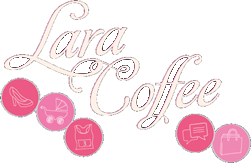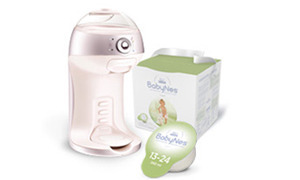Nestlé’s BabyNes
Recently, Nestlé’s launched a new baby product BabyNes, basically a formula dispenser similar to the K-cup coffee machines. According to their May 25, 2011 press release:
BabyNes is the world’s first comprehensive nutrition system for infants and toddlers, and is based on Nestlé’s latest scientific achievements in baby nutrition and systems technology. With BabyNes, Nestlé builds on its unmatched expertise in baby nutrition gained over 145 years since the invention of Farine Lactée by Henri Nestlé.
Nestlé supports exclusive breastfeeding for the first six months of an infant’s life, in line with World Health Organisation (WHO) recommendations, and continued breastfeeding thereafter for as long as possible. For babies who are not breastfed, Nestlé provides high-quality breast milk substitutes, such as BabyNes.
BabyNes offers single-serve formulas for infants and young children up to the age of three years. The composition of the six consecutive formulas meets the evolving nutritional needs in the first three years of life: four formulas in the first year, and one formula for each of the following two years. The customised composition of these products is tailored to suit the growth pattern in early life and the baby’s changing nutritional needs, while taking into account the steady introduction of solid food into the infant’s diet.
The single-serve portions are sealed in capsules, used in the proprietary BabyNes machine, which recognises each capsule and prepares the bottle with precisely the right dosage and temperature, at the push of a button, in less than one minute. The BabyNes machine combines state-of-the-art technology with the utmost safety and convenience, and ensures a hygienic, quick and easy bottle preparation.
Now, this isn’t a necessity by any means, but from pure marketing point of view, this is brilliant. Let me defend why I say this before I am shot down. The baby product industry globally continues to grow even in the midst of economic down turn. Cashed up 30-somethings are buying up big for their newborns, with only the best in mind. This attitude, combined with rising birth rates to older parents is giving rise to a new area of growth: high-end baby products. As a result Nestle’s is targeting the 30 somethings that have disposable income and are willing to spend their money on only the best for their babies.
There is a great debate and dissatisfaction with this new product for reason varying from not eco or economically friendly, and according to some groups they feel it doesn’t adequately promote breastfeeding.
First, I do not believe Nestlé claims this product is for everyone. Yes, this product is expensive with a price tag of $295 for the machine, but their main target audiences aren’t individuals with no disposable income or considered “poor”.
Second, it is Nestlé’s right to sell products that cater to individuals that cannot or choose not to breastfeed for whatever reason. Yes, as we know breast milk is best for babies, but it’s every woman’s choice whether they choose to breastfeed or not – not the baby product industry. And if I read it correctly, the second paragraph in the press release states, “Nestlé supports exclusive breastfeeding for the first six months of an infant’s life, in line with World Health Organisation (WHO) recommendations, and continued breastfeeding thereafter for as long as possible.”
Third, I cannot address the non eco-friendly claims because I do not know enough about the products makeup and how it will affect our atmosphere.
Do not misinterpret what I am saying, the BabyNes in my opinion is a frivolous purchase and I do not plan on buying one, and of course it is too early to tell whether this product will sell and be a success, but it is still a brilliant move by Nestlé – capitalism at its best.







